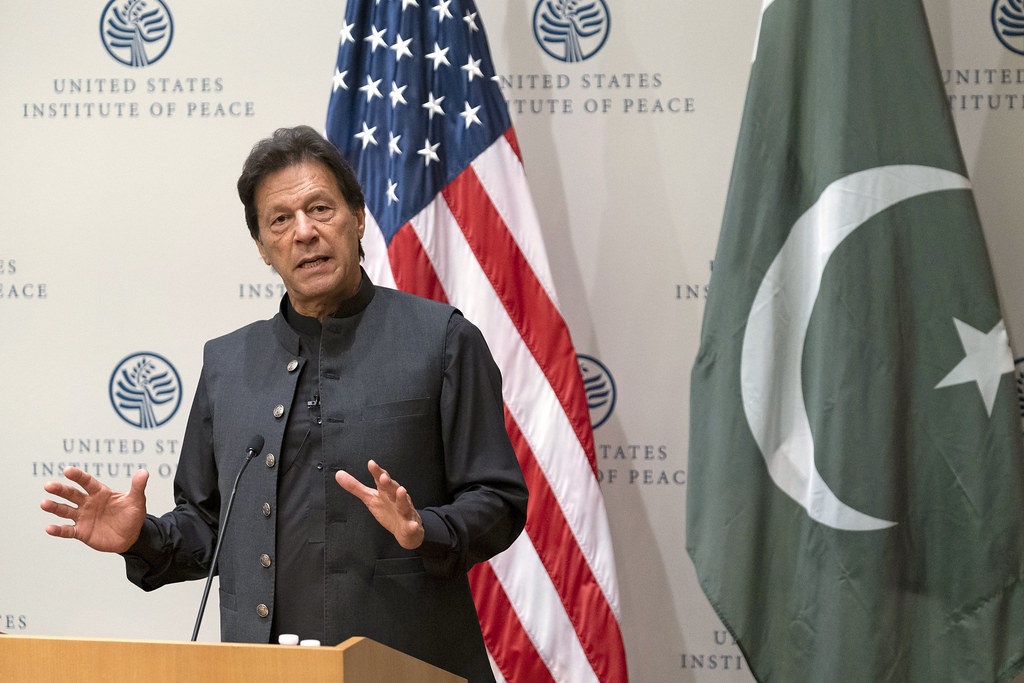
Imran Khan: A Cricketer, Philanthropist, and Prime Minister
Imran Khan is a Pakistani politician, cricket player, philanthropist, and social activist. He is the 22nd and current Prime Minister of Pakistan, in office since 2018.
Early Life and Education
Imran Khan was born in Lahore, Pakistan, in 1952. He is the son of Ikramullah Khan Niazi, a civil servant, and Shaukat Khanum, a homemaker. Khan’s father was a Pashtun from the North-West Frontier Province, while his mother was a Punjabi from Lahore.
Khan was educated at the Royal Grammar School in Worcester, England, and the University of Oxford, where he studied philosophy, politics, and economics. He was a keen sportsman at school and university, and played cricket for both institutions.
Cricket Career
Khan began his cricket career in 1971 and went on to play 88 Test matches and 175 One Day Internationals for Pakistan. He was a fast bowler and all-rounder, and is considered one of the greatest cricketers of all time.
Khan was captain of the Pakistan national team from 1982 to 1992. He led the team to victory in the 1992 Cricket World Cup, which was Pakistan’s first World Cup title.
Post-Cricket Career
After retiring from cricket, Khan founded the Shaukat Khanum Memorial Cancer Hospital and Research Centre in Lahore in 1994. The hospital is one of the leading cancer treatment centers in Pakistan.
In 1996, Khan founded the Pakistan Tehreek-e-Insaf (PTI), a political party. The PTI is a liberal, secular party that advocates for social justice and economic development.
Khan led the PTI to victory in the 2018 general election, becoming the Prime Minister of Pakistan. He has promised to fight corruption, improve the economy, and create a more just and equitable society.
Political Career
Khan’s political career has been marked by both successes and failures. He has been praised for his charisma and his commitment to social justice, but he has also been criticized for his lack of experience and his close ties to the military.
One of Khan’s most notable achievements as Prime Minister was the launch of the Ehsaas Programme, a social welfare program that provides financial assistance to the poor. The program has helped millions of Pakistanis, and it has been credited with reducing poverty in the country.
Khan has also made progress on the economic front. He has introduced a number of reforms aimed at stimulating growth and creating jobs. The economy has grown at a healthy pace under Khan’s leadership, and unemployment has fallen.
However, Khan has also faced a number of challenges during his time in office. One of the biggest challenges has been corruption. Khan has vowed to fight corruption, but he has made little progress in this area.
Another challenge has been the divided political landscape in Pakistan. Khan’s government has been opposed by the traditional political parties, and he has faced a number of challenges in passing legislation.
Despite the challenges, Khan remains a popular figure in Pakistan. He is seen by many Pakistanis as a breath of fresh air, and he is a symbol of hope for a better future.
Khan’s Political Views
Imran Khan’s political views are a mix of liberal and conservative ideas. He is a strong supporter of democracy and human rights, but he is also a nationalist who believes in the importance of national security.
Khan is a critic of the traditional political parties in Pakistan, which he sees as corrupt and incompetent. He has called for a new political order that is based on merit and transparency.
Khan is also a strong advocate for social justice. He has pledged to fight poverty and inequality, and he has promised to provide better education and healthcare for all Pakistanis.
Khan’s political views have evolved over time. In his early days, he was more of a liberal democrat. However, he has become more conservative in recent years, particularly on issues such as religion and national security.

Khan’s Foreign Policy
Imran Khan’s foreign policy has been marked by a strong focus on Pakistan’s national security interests. He has sought to improve relations with Pakistan’s neighbors, particularly India and China.
Khan has also been critical of the United States, which he sees as having a neo-colonial approach to Pakistan. He has called for a more independent foreign policy for Pakistan.
Khan’s Legacy
It is too early to say what Imran Khan’s legacy will be. He is a popular figure